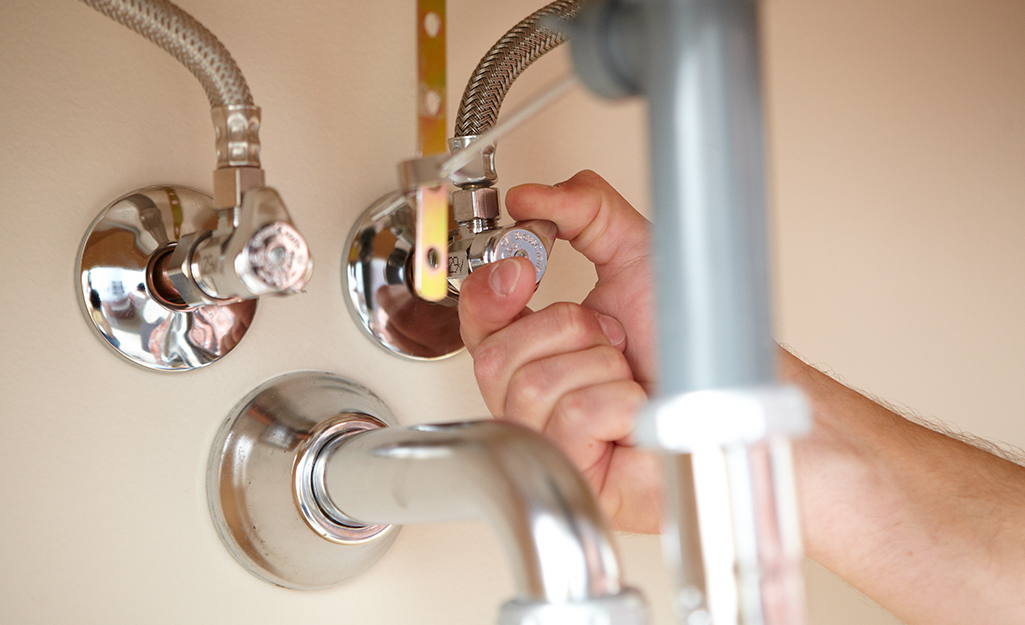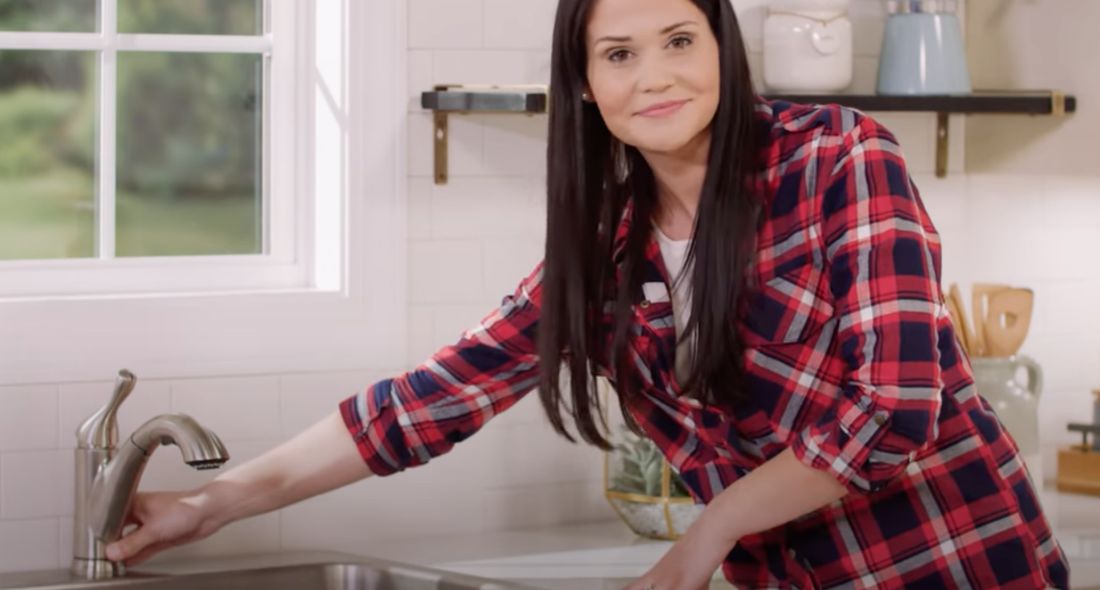Understanding the Significance of Resolving a Faulty Faucet
Understanding the Significance of Resolving a Faulty Faucet
Blog Article
They are making a few great observations related to How to Fix a Dripping or Leaky Faucet overall in this great article directly below.

Leaking taps may look like a small inconvenience, yet their influence goes beyond simply the inconvenience of the noise. From wasting water to incurring unneeded monetary prices and health and wellness dangers, neglecting a dripping faucet can lead to different consequences. In this post, we'll look into why it's important to address this usual household problem without delay and efficiently.
Waste of Water
Ecological Influence
Dripping faucets contribute significantly to water wastefulness. According to the Epa (EPA), a solitary tap dripping at one drip per secondly can squander more than 3,000 gallons of water each year. This not just stress water resources however likewise influences environments and wildlife based on them.
Step-by-Step Guide to Fixing a Dripping Tap
Devices Required
Prior to trying to take care of a trickling tap, collect the necessary devices, including an adjustable wrench, screwdrivers, replacement components (such as washers or cartridges), and plumber's tape.
Typical Tap Issues and Their Solutions
Recognize the kind of faucet and the details problem triggering the drip. Typical problems include worn-out washing machines, rusty valve seats, or malfunctioning O-rings. Refer to manufacturer directions or on the internet tutorials for detailed guidance on repair work.
Financial Costs
Increased Water Expenses
Past the ecological impact, trickling taps can pump up water expenses substantially. The collected wastefulness in time converts right into greater energy expenditures, which can have been avoided with prompt repair services.
Prospective Property Damage
Moreover, extended dripping can cause damage to components and surfaces surrounding the tap. Water build-up can trigger staining, rust, and also structural concerns if left neglected, leading to extra fixing prices.
Wellness Problems
Mold and Mildew Growth
The constant existence of wetness from a leaking faucet creates an excellent setting for mold and mold growth. These fungi not just compromise interior air top quality however also present wellness threats, particularly for people with respiratory conditions or allergies.
Waterborne Illness
Stagnant water in dripping taps can come to be a breeding place for bacteria and other virus, raising the danger of waterborne illness. Contaminants such as Legionella germs flourish in stationary water, possibly resulting in major illnesses when ingested or breathed in.
Do it yourself vs. Expert Fixing
Pros and Cons of DIY Repair
While some might try to deal with a trickling tap themselves, DIY fixings feature their very own collection of obstacles. Without correct expertise and devices, do it yourself attempts can intensify the problem or bring about incomplete repair services, extending the trouble.
Benefits of Hiring a Professional Plumber
Working with a specialist plumber makes certain that the underlying root cause of the dripping tap is resolved successfully. Plumbers have the proficiency and tools to diagnose and repair faucet problems effectively, saving time and decreasing the risk of more damages.
Ecological Obligation
Private Payment to Conservation
Taking obligation for repairing leaking faucets aligns with broader initiatives toward water conservation and environmental sustainability. Every individual's actions collectively make a significant influence on protecting precious resources.
Sustainable Living Practices
By prioritizing timely fixings and adopting water-saving practices, people add to lasting living practices that profit both existing and future generations.
Safety nets
Regular Maintenance Tips
To prevent dripping taps, execute routine upkeep such as cleaning up aerators, inspecting for leakages, and replacing damaged components quickly. In addition, consider mounting water-saving devices or upgrading to more efficient components.
Relevance of Prompt Fixes
Dealing with trickling faucets as soon as they're noticed prevents more water wastefulness and prospective damage, ultimately conserving both water and cash in the future.
Impact on Residential Or Commercial Property Worth
Assumption of Well-Maintained Building
Keeping a home in good condition, including resolving upkeep concerns like trickling taps, improves its viewed value and value among potential purchasers or renters.
Impact on Resale Worth
Features with well-maintained plumbing fixtures, consisting of taps, command higher resale values in the real estate market. Addressing trickling taps can add to a favorable perception during property examinations and negotiations.
Conclusion
Resolving a trickling faucet exceeds mere benefit; it's an essential action towards preserving water, decreasing financial prices, and safeguarding health and residential or commercial property. Whether through do it yourself repairs or professional support, taking action to repair leaking faucets is a little yet impactful method to promote liable stewardship of resources and add to a healthier, much more sustainable future.
How to Fix a Leaky Faucet: Step-by-Step Repair Guide
A leaky faucet may seem like a simple annoyance, but if it's not fixed promptly, that leak could cost hundreds to potentially thousands. From water damage to mold, mildew, and high water bills, even a tiny leak can be catastrophic if left unattended. Damage like this can even affect the overall value of your home, so it's important to take the right approach for leaky faucet repair. You may need the help of a plumber in some cases, but we've got a few tips you can try on how to fix a leaky faucet before calling the pros.
Four Faucet Types
When you're learning how to fix a leaky faucet, the first step is knowing what kind of faucet you're working with! There are four common types.
Cartridge Faucets
Cartridge faucets come in one- or two-handled varieties. In one-handled cartridge faucets, hot and cold water combines in a single cartridge. In the two-handled versions, hot and cold water are controlled separately and mixed in the faucet.
Ball Faucets
Ball faucets have a single lever you push up and down to adjust the pressure and rotate to change the temperature. A slotted metal ball controls the amount of water allowed into the spout.
Compression Washer Faucets
They're the oldest type of faucet, but they're still used in many homes — especially older ones. Compression faucets have two separate handles that, when turned, raise or lower the washer that seals a water valve. This valve stops water from flowing through the faucet when it is turned off.
Disc Faucets
Disc faucets rarely need to be repaired due to their maintenance-free design. The water flow is controlled by two discs — the upper one raises and lowers against a fixed lower disc, creating a watertight seal. If your disc faucet starts leaking, you may need to replace the seals or clean residue buildup from the inlets.
Fixing a Leaky Faucet
Step 1: Turn Off the Water
Whether you're learning how to fix a leaky bathtub faucet or how to fix a leaky kitchen faucet, always turn off the water supply to your working area when you're fixing a leak. The last thing you want is a flood added to your list of things to fix.
Look for the shutoff valves below your sink or around the tub and turn them clockwise to stop the water flow. If your faucet doesn't have shutoff valves, you may need to turn off the water for the whole house. Check to make sure it's off by turning the faucet on. If nothing comes out, you're ready to start the repair.
Step 2: Take Apart the Faucet
How you disassemble your faucet depends on the type of fixture you have. You can use a flathead screwdriver to remove the caps on top of the handle or handles for cartridge and compression faucets. Inside, you should see handle screws. Unscrew these with a screwdriver to remove the handle.
Disc- and ball-style faucets will typically have an inlet screw near the handle, and removing that will reveal the interior of the faucet.
Detach the Valve Stem
For cartridge- and compression-style faucets, you'll see the inner valve stem or cartridge once you remove the faucet handles. If you have a compression faucet, unscrew the brass valve stem. If you have a cartridge faucet, pull out the cartridge. If your cartridge has been in place for a while, it may require some tools or extra force to remove it due to mineral deposits.
Examine and Replace Parts
Once you've removed the parts, check them out to confirm what needs to be replaced. You may see corroded rubber washers, O-rings, stems, or cartridges. On a ball-style faucet, check the seats and springs for damage.
If you need to repair a leaky disc faucet, check the inlet and seals on the lower disc.
Once you determine what parts must be replaced, visit your local hardware store. Bring the damaged parts with you to ensure you can purchase the correct components to replace them.
Clean Valves and Faucet Cavity
If you've removed a stem or cartridge, you may notice mineral buildup in the faucet's threads. Use white vinegar to clean the valve seat by soaking it for a few minutes, then scrub it away with a soft toothbrush and rinse with warm water. You can also clean the interior of the faucet in the same way.
Reassemble the Faucet
Once your faucet is cleaned and the required parts have been replaced, it's time to reassemble it. Put the pieces back together and slowly turn the water supply back on. Doing this slowly is crucial because too much initial water pressure can damage the new hardware you've just installed.
https://homewarranty.firstam.com/blog/how-to-fix-leaky-faucet

We had been shown that report about Why It's Important to Fix Leaky Faucets from an acquaintance on our other web address. So long as you enjoyed our article please don't forget to pass it around. Thanks a bunch for being here. Come back soon.
Report this page